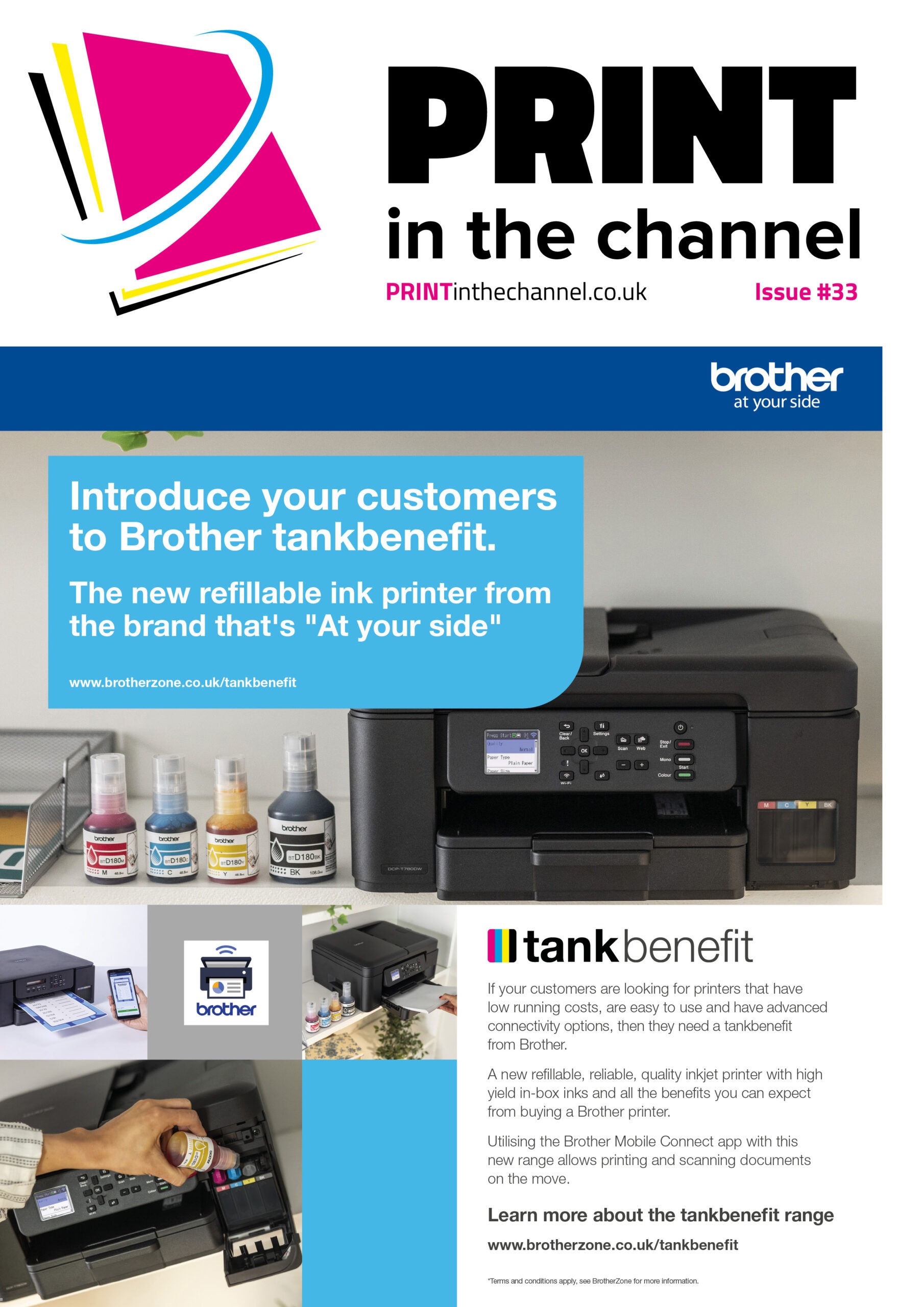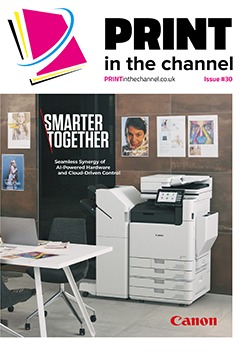With customers now looking for more sustainable options with their printers and the consumables they use, sustainable toner is becoming more important – and manufacturers have responded with products and recycling services. Sustainability is an increasing priority for businesses in many sectors – indeed, for some, how sustainable they are can be the difference between winning a contract and not.
With that in mind, businesses looking to become more sustainable in many aspects of their workings, including in the office and, as a result, printers are being given more scrutiny, and this includes the consumables they use, such as the toner, to see where savings can be made.
Steve Pearce, group head of marketing at Kyocera Document Solutions UK, says that businesses are increasingly looking at sustainable consumables that help make a difference economically, environmentally and for their employees. “Long-life toner that doesn’t cost the earth, for example, is becoming more essential,” he says.
But, that said, some businesses are not yet on board with the sustainability agenda. “There’s no point denying, however, that cheaper, compatible toner has been and remains popular,” says Steve. “Lots of customers see toner as a commodity and will often opt for cheaper alternatives.”
But buying cheap and compromising on sustainability can be a false economy, Steve warns. “Common sense must always prevail despite squeezed margins or procurement budgets, or businesses run the risk of experiencing quality issues such as light prints, banding or vertical surface lines, compounded by toner dumping and lower print yields,” he says. “At the same time, it’s difficult to know whether the toner is toxic or if straight-to-landfill plastics are used.
“The good news is that our consumables distributors have done a great deal in promoting the benefits of genuine, sustainable toner to resellers, so it’s a much bigger consideration now than it once was, and it continues to grow in importance every day.”
Serious undertaking
Peter Cowan, group chief operations officer at Data Direct, says that manufacturers have responded to the desire from customers for more sustainable toner. “Manufacturers are taking this very seriously, responding to end-user pressure as well as the expectation of further legislation,” he says. “There has been a push towards improving packaging solutions for the toners for many years, but now there is much more effort as to the actual printing process and the related consumables.
“We have manufacturers that have already developed biodegradable toners for certain ranges of machines, but price continues to be a barrier to further development – only new legislation will force the hand in this regard. There is a feeling that certain types of inkjet manufacturing are more environmentally friendly, but that case is yet to be proven.”
Steve adds that, just like other OEMs, Kyocera take toner innovation seriously. “Our toner has a sharp melting core covered by a thin shell. It fuses at a temperature 30 degrees lower than that of conventional printers and MFPs, which cuts power consumption by half,” he says.
“The standard toner cartridge on the ECOSYS MA4000wifx series, for example, has some special attributes from a sustainability perspective. It is capable of printing 10,000 pages before needing to be replaced, which is almost three times the volume of competitor models in its class. This means less shipping and less plastic waste from spent cartridges. The toner is also free from titanium dioxide.
“Our toner is also ethically produced in a factory owned by the Kyocera Group, a member of the UN Global Compact. Our production facilities have strict ESG goals and prioritise environmental conservation, workplace safety and coexistence with local communities.”
Toner recycling
Toner cartridge recycling schemes are also growing in popularity too to save resources and lower carbon emissions.
“Recycling is a very hot issue – for years, there has been a prevalence of recycling programmes which have merely exported product that will eventually go to landfill in another country,” notes Peter. “We recently introduced a programme which keeps the product breakdown and recycling within the UK, seeing raw components extracted to be re-distributed to other manufacturing sectors in the UK, such as making road bollards utilising discarded toner cartridges.”
Steve agrees that toner cartridge recycling schemes are popular. “Especially when these schemes are offered to customers free of charge!” he adds
“We’ve seen great success with our Toner Take-Back service, which enables Kyocera customers to recycle used cartridges through a free, zero-waste-to-landfill collection service, where plastics and polymers are turned into recyclate for reuse in the manufacturing of new products – such as furniture for children’s playgrounds. Our toner cassettes and product packaging are also 100% recyclable.
“To make the scheme even more sustainable, we moved the programme from Germany to the UK in September last year, reducing carbon emissions associated with shipping empties abroad and saving an estimated 125 gallons of diesel. Crucially, we’ve seen a 47% jump in toner units being recycled by our customers in the last year, which underlines the scheme’s popularity.
“We make the process as easy as possible for customers, which is key in building and maintaining the popularity of the programme.”
Remanufacturing
Meanwhile Brother has an initiative where it remanufactures toner cartridges. The company first started doing this 20 years ago and recently became the first print company to receive the Blue Angel certification for one of its remanufactured toner cartridges, according to Craig McCubbin, managing director at Brother Industries UK. This was awarded after auditors confirmed that more than 75% of its weight came from reused parts.
“Customers can send used cartridges back to us at our site in Ruabon, North Wales, where working parts will be cleaned and reused to create consumables that look and perform just like new products,” he says.
“There is no difference in the performance and quality of our remanufactured consumables compared to ‘new’ ones, but the boost to sustainability is enormous. By remanufacturing toners in the way we do, we cut CO2 emissions by about 5,300 tonnes every year.
“We know resellers are always looking for ways to support their customers’ sustainability goals and our remanufacturing operations are another solution for them to offer businesses.”
Making a difference
But using sustainable toner and recycling cartridges isn’t just for show – it can make a real difference to a business meeting its sustainability targets.
“If products are going through a ‘true’ recycling process, then it can make a substantial difference,” says Peter. “Numbers vary, but a common figure is that 65 million printer cartridges are discarded in the UK every year – simply doing the maths show that improving on the current 30% recycling ratio will make a big difference.”
The way cartridges are made has an impact, Steve adds. “Sustainable, long-life components – such as image drums and high-capacity toners – are eco-conscious by design,” he says. “Reducing how often you replace consumables drives down total cost of ownership (TCO) and cuts the need for raw materials, associated emissions and shipping mileage. In short, the difference made is stark if businesses commit to the sustainability cause.
“Kyocera’s cartridges, for example, are 100% recyclable. They are made from two plastics, contain as few as 10 components, and ship in eco-friendly packaging. They are independently tested to ensure a specific number of pages over their lifetime: the volume required to maintain low TCO.
“Further, Kyocera toners do not contain chemicals that release carcinogenic particles such as mercury, lead, nickel and chromium VI compounds. This helps ensure the health of end users and maintains a safe workplace.”
Reseller conversations
When talking to customers about toners, and their sustainability, there are several factors that should be highlighted.
Going back to an earlier point, Steve says that choosing sustainable toner is about provenance and performance as well as the environment more generally. “Resellers should be talking extensively about this in their customer conversations,” he says. “After all, you wouldn’t put cheap fuel in a sports car as you wouldn’t get the best out of it!
“Long-life components and high-capacity toner reduce TCO because customers simply don’t need to replace cartridges nearly as often, while embracing sustainable materials and production methods ensures long-term environmental benefits. Resellers should build these arguments into sustainability-led sales and marketing initiatives.
“It’s also important for resellers to emphasise the importance and ease of toner recycling programmes. As explored earlier, this is something we do extensively at Kyocera.
“Carbon offsetting programmes should also be promoted. We can offset the emissions of the consumables of every product in our range, with registered customers receiving a certificate of authenticity after enrolling. Customers are becoming more and more aware of the advantages of such schemes, so resellers being able to offer them is key.”
Peter adds that dealers should also focus customers on what happens to their cartridge after they have finished with it. “Using a programme such as ours gives them a fully trackable environment, which has real value,” he says.
With interest in sustainability only growing, it means that sustainable toner will be an important part of resellers’ conversations about print and consumables for the foreseeable future and beyond.









